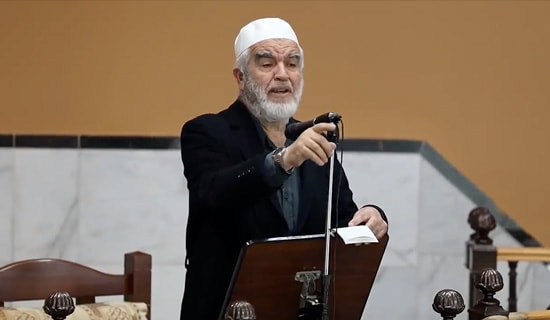Saudi dailies have recently been publishing articles on the importance of good music, emphasizing its effect on children's behavior and abilities and its contribution to tempering adults' personality and behavior. The articles present the paradox of Saudi youths being able to listen to shallow pop music on TV and on the Internet while the state school system enforces the religious ban on music – thus preventing these youths from ever being exposed to classical music, both Western and Arab, which would develop their taste and sensibilities.
Following are excerpts from articles on this topic:
Music Classes "Improve Children's Emotional Balance, Memory, and Learning Abilities"
Columnist Halima Mudhaffar wrote in the Saudi daily Al-Watan: "I think we need regular classical music lessons [in schools]. I am surprised that [such lessons] have not been introduced into the art curriculum following the calls in Education Ministry publications to develop the curriculum and teaching methods... [Music classes] are especially needed in the lower grades, because scientific studies have shown that they have many benefits, such as improving [children's] emotional balance, memory, and learning abilities."
"[When I speak of music], I do not mean the loud, trashy [pop] music that has invaded [our society]... but high-quality music, such as that of the composer Beethoven, the genius Mozart, the [contemporary composer of classical Arab music Muhammad] 'Abd Al-Wahhab, and others...
"Through such music, [children acquire] good taste, good manners and sensitivity to beauty in their surroundings... These are qualities that are lacking in our daily lives and conduct – at home, in the street. and even at work.
"Unfortunately, religious extremism – which has existed in our society for a long time and continues to exist [today] – has caused us to feel uneasy about art in general. In order to rectify our attitude, we must take a firm stand [against this extremism].
"I am surprised that the [Education] Ministry has put off taking this step, which would significantly develop cultural education in the schools – because by banning the teaching of music or its use in school plays, the ministry has [effectively] removed it from the lives of the pupils of this generation and of the generations to come. At the same time, the pupils are exposed to everyday music on satellite channels and music channels, most of which are Saudi-funded, and on websites..."
Religious Extremism Is To Blame for Our Uneasy Attitude Towards Music
SUPPORT OUR WORK

"[But] why go so far? There is hardly a street in our [country] where there isn't some store, licensed by the Commerce Ministry, selling trashy tapes and CDs alongside quality ones. Saudi channels play songs by singers from Saudi Arabia and the Gulf, and even organize [music] festivals in some Saudi towns, attended by thousands who move [to the beat] in their seats and sing along [with the music]. Moreover, there is the national Al-Jenadiriyah festival,[i] with its annual concert [by] the best [singers] and attended by millions. Singers also perform on Saudi National Day.
"But now, the Education Ministry has come along, and, disregarding the social reality... has prohibited [pupils] from hearing the national anthem accompanied by innocent music, played with enthusiasm – all on the pretext of [obeying the religious] ban on music...
"I wonder how the children react to this ban, when they [can] listen to music in their father's or brother's car, or watch [music videos] on the national TV channels. This is the disease of hypocrisy.
"[In the past,] I suggested adding music hours to the art curriculum in schools, and making these classes elective rather than mandatory, out of respect for those who believe in the prohibition... and are not interested in these classes. This was, if I remember correctly, at a [2003] debate on culture, at the first conference of Saudi academics organized by the Culture and Information Ministry.
"[Today] I again advise the Education Ministry [to introduce music into the curriculum]... out of a desire to protect our boys and girls from the loud music that surrounds them – which adversely affects their behavior and ruins their memory."[ii]
Music Helps Children to Express Emotions
Fawzia Al-Bakr, a columnist for the Saudi daily Al-Jazirah and professor of education at King Saud University in Riyadh, wrote: "...The eternal [art of] music has vanished from our cities and homes, so that each of us is making his own way in the world of pleasures. Thus, we have fallen victim to the shallow [music] accessible [via the media], and no longer have the knowledge to compare and distinguish [bad music from good].
"Our youth has begun to pursue this craze of 'rhythmic music' or 'dance music,' without having even the slightest [acquaintance with the] pleasure of good music...
"It is hard to predict how the absence of music from our homes and schools will affect our [life]style, character, hearing and attention to details, for we no longer experience music. It is through studying, experiencing, and creating art that we learn to notice details, make connections, and relate to others, and [develop] accurate and logical thinking... [Music helps us] hone the skills we need in this contemporary world in our personal and professional lives...
"Music is also an ideal way for young children, as well as teenagers, to express their feelings through socially acceptable channels, and it helps to discharge the excess energy that exists in children of these ages...
"From the day they are born, children are attracted to sounds, colors and water, which they associate with the sounds of surrounding nature. It is therefore our duty... to give them back this natural [resource], and help them to find their [emotional] balance, which can be found only in a world where one can enjoy all forms of art."[iii]
Endnotes:
[i] An annual heritage and culture festival dedicated to traditional Saudi music, books, costumes, arts and crafts, sponsored by the Saudi king, which has been held in the country since 1985.
[ii] Al-Watan (Saudi Arabia), October 25, 2008.
[iii] Al-Jazirah (Saudi Arabia), October 25, 2008.




